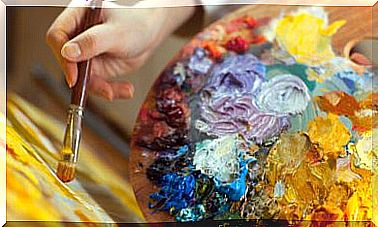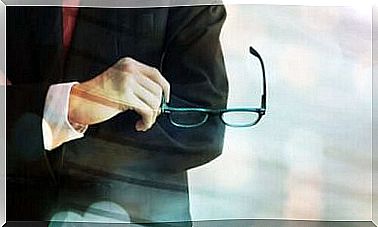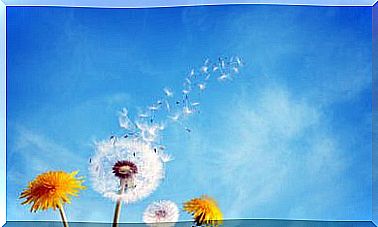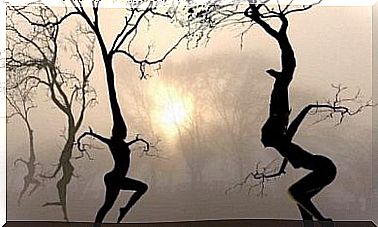Everyone Makes Mistakes, But Few Can Say Sorry
Making mistakes is human. It can also be a good opportunity to grow in a modest way and to realize that life is a constant learning process. But it’s also smart to accompany every mistake, neglect and insult with a ‘ forgive me’ . A virtue that many of us should apply more in practice.
That internal mechanism of self-evaluation through which we realize that we have acted incorrectly somewhere is dominated by a well-known entity called ‘ego’. In fact, there is no greater hindrance than one who, instead of feeling empathy for the hurt person, is focused purely on the subtle but vile need to protect the dimension of his ego.
We all make mistakes, but few of us actually practice the virtue of asking for forgiveness. Therefore, I consider a person noble when he is mature enough to say ‘ I was wrong’ and brave enough to look me straight in the eye and ask for forgiveness.
If you think about it more deeply, you will realize that we use the word ‘ sorry’ almost on a daily basis. When we accidentally bump into someone, when we interrupt a friend and talk through him in a conversation. However, few people, after making a mistake in a sensitive and profound aspect of their lives, are able to take the plunge. Few can bring themselves to say, ‘ I’m sorry, I made a mess. Please forgive me’.
Why is this so hard for us anyway? We invite you to reflect on this theme.
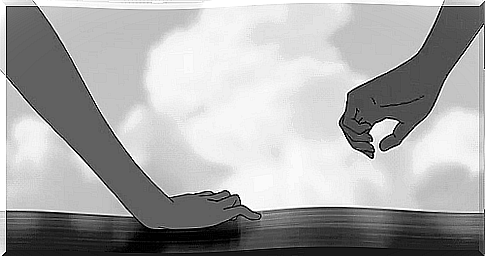
Making mistakes, a human factor
Each of us is extremely fallible. Far from seeing mistakes as negative, we should appreciate our mistakes in all their transcendence and detail, so as to learn a lesson from them. Because making mistakes is nothing more than a direct invitation to improve.
Now we also know that there are errors and mistakes . We may make mistakes that, as James Joyce once said, “are nothing more than the gates to self-discovery.” Science itself, moreover, is full of these incredible ‘coincidences’. The moments when famous scientists accidentally stumble upon an innovative finding after making a favorable mistake.
This human factor acquires its more complex counterpart when making a mistake becomes a synonym for insult, or for personal humiliation of others. These situations are further amplified when the person repeats the insult, rather than showing that they are aware that they were insulting. Perhaps out of pride or because of a deep, emotional immaturity.
A society that punishes mistakes
We live in a society that rarely apologizes. And when we do, sometimes we also show that immaturity that we talked about earlier. There are even people who ask for forgiveness through WhatsApp. Or people who publish their apologies on social networks so that everyone can read it and the person in question has no choice but to go along with it.
We also live in a social environment where children are taught that making mistakes is a bad thing. In the current education system, failure of a student is punishable by law. It is something that needs to be corrected, but not without applying strict rules. As a result , the child learns a fiery defense mechanism from a very early age to camouflage his mistakes. To prevent his mistakes from being seen by others and thus to protect his own self-confidence.
This is when a vicious circle starts. If I can’t or won’t see my mistakes, I don’t have to apologize. Gradually, the quality of apologizing is lost. Instead, we choose to hide our actions because of our gigantic ego. We are all missing out on great opportunities to learn and improve ourselves because of this. This is because, from such a young age, we have treated our mistakes and mistakes as something negative and surrounded by sanctions.
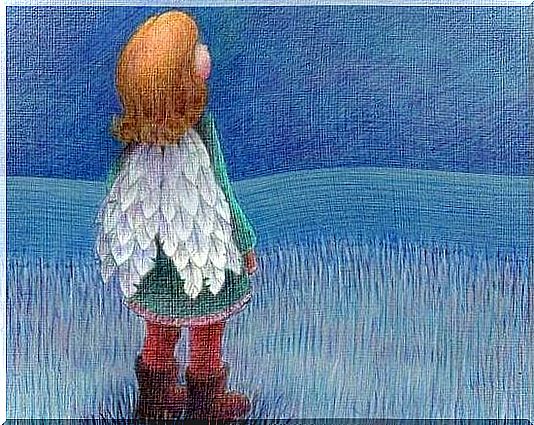
The virtue of being able to say sorry after you’ve made a mistake
Authentic forgiveness, the type that heals and produces closeness, is not limited to a simple act of altruism. Forgiveness is, above all, an attitude and the clear decision to be brave. It involves acknowledging the damage that has been done, so as to show the person in front of you that you are aware of what you have caused.
We also need to be clear about the fact that not every ‘ I’m sorry’ counts. Not every person who asks for forgiveness will be forgiven. Nevertheless, you have to do it and well. To put into practice the healthy virtue of knowing how to apologize after a mistake, we can learn from a study conducted by Ohio University.
Here are the best steps you can take to apologize and ask for forgiveness:
- Have no prejudices. Our society associates saying sorry with weakness. So now is the time to let go of this inner prejudice. Time to see that there is none braver than he who can immerse himself in modesty and apology.
- Visual contact and assertiveness help you not to fall into false justifications. It is important to look the person you have wronged straight in the eye, to clearly show that you know you were wrong.
- Take your own responsibility for everything that happened.
- Repentance, to be credible, must always be accompanied by a clear will to repair the damage.
- Forgiveness must be given without drama and with the right empathy.

People often say that he who apologizes first is the bravest and he who forgives is the most humble. But in reality, our strength lies in learning all these steps. These help us every day to overcome our personal contradictions, in which our ego never fits well.
Because there is nothing you learn so much from than from making mistakes. And there is nothing more valuable than knowing how to ask for forgiveness.

